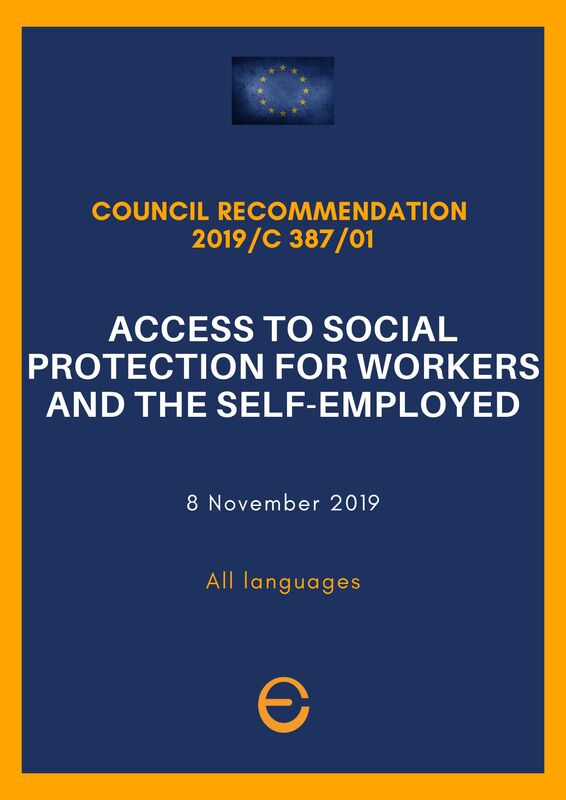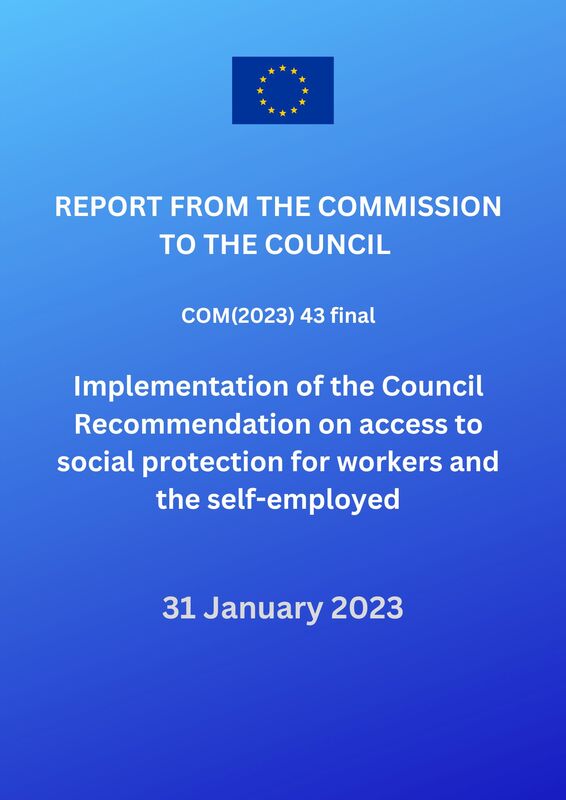Access to social protection
Principle 12 of the European Pillar of Social Rights stresses that regardless of the type and duration of their employment relationship, workers, and, under comparable conditions, the self-employed, have the right to adequate social protection.
|
Social protection systems provide support to people who cannot earn their income or face additional needs, for instance, because of unemployment, parental responsibilities, sickness, disability or old age. This support can take the form of cash benefits, such as pensions or unemployment benefits, or benefits in kind, such as care services. In the EU, most social protection benefits are provided by public authorities. In some cases, employers or social partners jointly also provide benefits, such as occupational pensions. The set-up and financing of social protection systems is primarily a competence of Member States, while the EU supports national actions to ensure social protection and upward social convergence. The EU ensures the protection of rights of people who move between Member States through the social security coordination. |
|
Council recommendation on access to social protection
As part of the implementation of the European Pillar of Social Rights, the Council Recommendation on access to social protection for workers and the self-employed was adopted in November 2019. The objective is to support people in non-standard forms of employment and self-employment who, due to their employment status, are not sufficiently covered by social security schemes and thus are exposed to higher economic uncertainty. The Council Recommendation aims to encourage EU countries to:
|
The Recommendation covers social security schemes for unemployment, sickness and healthcare, maternity or paternity, accidents at work and occupational diseases, disability and old age.
Within the framework of the Social Protection Committee, the Commission supports Member States and stakeholders in achieving the objectives of the recommendation,
In January 2023, the Commission released a report to the Council on the implementation of the Recommendation.
Within the framework of the Social Protection Committee, the Commission supports Member States and stakeholders in achieving the objectives of the recommendation,
- through dialogue and mutual learning activities, but also
- by improving statistics and proposing a monitoring framework.
In January 2023, the Commission released a report to the Council on the implementation of the Recommendation.
National plans
Member States were recommended to implement the principles of the Recommendation and to submit a plan setting out the corresponding measures to be taken at national level by 15 May 2021.
The national plans submitted by Member States during 2021 can be found below. By clicking on each country, you can access the respective national plan, in English and for some countries in the national language(s):
Member States were recommended to implement the principles of the Recommendation and to submit a plan setting out the corresponding measures to be taken at national level by 15 May 2021.
The national plans submitted by Member States during 2021 can be found below. By clicking on each country, you can access the respective national plan, in English and for some countries in the national language(s):



